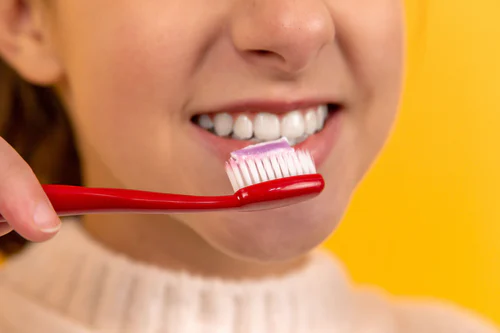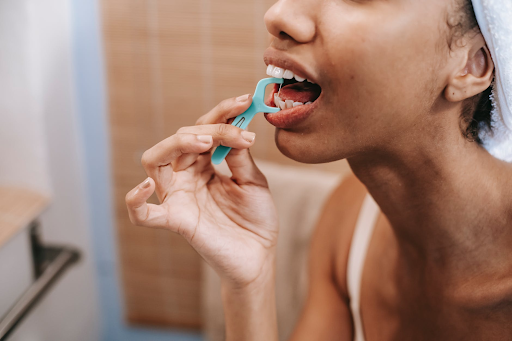
When did you last brush your teeth? When was the last time you flossed? Simply brushing your teeth once or twice a day doesn't mean you're necessarily taking care of your oral health. There are many things that go into a proper dental hygiene routine, an although most people are concerned about the health of their teeth and gums, not enough people do everything they can to take care of them.
Unfortunately, many people don’t start to take care of their teeth and gums before the damage is done. Many people will only visit a dentist when cavities have already developed or when there are signs of gum disease. By practicing correct oral hygiene procedures you may prevent issues before they arise. Taking care of your mouth may also prevent small issues from becoming catastrophes. Here are some of the oral hygiene mistakes you should try to avoid.
7 Oral hygiene mistakes you should try to avoid
1. Visiting the dentist after the worst has happened
A visit to your dentist shouldn’t be the last resort once a problem has arisen. You should have a regular (every six months) dental check-up and scale to ensure your teeth and gums are in good health.
Unfortunately, many Australians don’t have regular dental checks and only visit a dentist when there is an emergency. Moreover, the state of Melbourne orthodontics is great. It doesn’t matter if you book an appointment to see an orthodontist there or a dental hygienist in Perth - you shouldn’t wait until you have tooth pain or bleeding gums to book an appointment.
Not only can ignoring your dental hygiene lead to discomfort or pain, but it may also lead to the need for expensive treatments that may leave you with significant out-of-pocket expenses, even if you have private insurance
2. Forgetting to brush or only brushing once per day
Many people only brush their teeth once a day, and some, especially if they have a bust schedule may forget to brush at all. Needless to say, that’s not good for your teeth and gums. Brushing before or after breakfast is a good start to the day, and brushing your teeth after dinner or before dead is equally important. Not brushing leaves you with food particles and residue in your teeth that attract bacteria. This bacteria forms a sticky, clear paste called plaque and may harden into yellow/brown tartar. This causes tooth discolouration, but that’s not all. The bacteria in plaque and tartar produce an acid that causes tooth decay well as the gum diseases gingivitis and periodontitis.
3. Brushing too hard
Many people make the mistake of brushing their teeth hard, thinking they are cleaning their teeth and gums well. Aggressive brushing leads to enamel abrasion, which destroys the outer surface of your teeth and exposes the softer, more vulnerable dentine layer underneath. Dentine is more susceptible to decay and infection than the hard, protective enamel. Experts recommend having a soft bristle brush and using less force to clean your teeth.
4. Not brushing long enough
How much time do you spend brushing your teeth? Even if you’re in a hurry, you shouldn’t rush brushing your teeth. It’s recommended that you brush your teeth for two minutes, or about 30 seconds on each quadrant of your mouth (inside lower, inside upper, outside lower, outside upper). This amount of time allows you to thoroughly scrub your teeth and allows your toothpaste to work optimally. If you skimp on your brushing time then you may fail to remove plaque, leading to a buildup, tartar and possible cavities and gum disease. Many electric toothbrushes have a brush timer, letting you know when you have been brushing for two minutes. If you use a manual toothbrush a two minute egg timer is a good reminder for how long you should be brushing.
5. Not flossing

In addition to brushing you should floss your teeth on a regular basis. What is dental flossing? Flossing uses thin, thread-like filaments passed through the gaps between teeth to remove trapped food particles and dental plaque where toothbrush bristles may not be able to reach. Some people may avoid flossing due to pain or dental bleeding , while others see it as a waste of time.
Flossing is important for your overall dental health as it helps inhibit plaque growth. If you regularly bleed while flossing or brushing, you should book an appointment to see your dentist and have your gums checked for signs of gingivitis or periodontitis.
6. Rinsing mouth instead of brushing or flossing
Simply rinsing without brushing or dental flossing does not adequately clean your mouth. While mouthwash can be an excellent addition to your dental hygiene regimen, you still need to brush and floss your teeth. Brushing and flossing clean teeth, whereas mouth washing simply freshens your breath and helps kill bacteria.
7. Using the wrong toothpaste
There are many different types and brands of toothpaste on the market, with each claiming to clean your teeth well, improve dental hygiene, safeguard against cavities, offer 24 hour mouth protection and whiten your teeth, but not all toothpastes are necessarily good for your teeth. Some toothpaste brands contain low quality ingredients that don't adequately clean the teeth or restore the gums. Your toothpaste should meet all criteria for both cleaning and protecting your teeth and gums. If you aren't sure of the right toothpaste to buy, you can ask your dentists for the best brands or options available to suit your needs. As an example, if you have cavities in your teeth or have worn down your tooth enamel your dentists may suggest using fluoride toothpaste to help strengthen your teeth. Not using the right toothpaste might make cleaning your teeth more difficult or even cause damage.